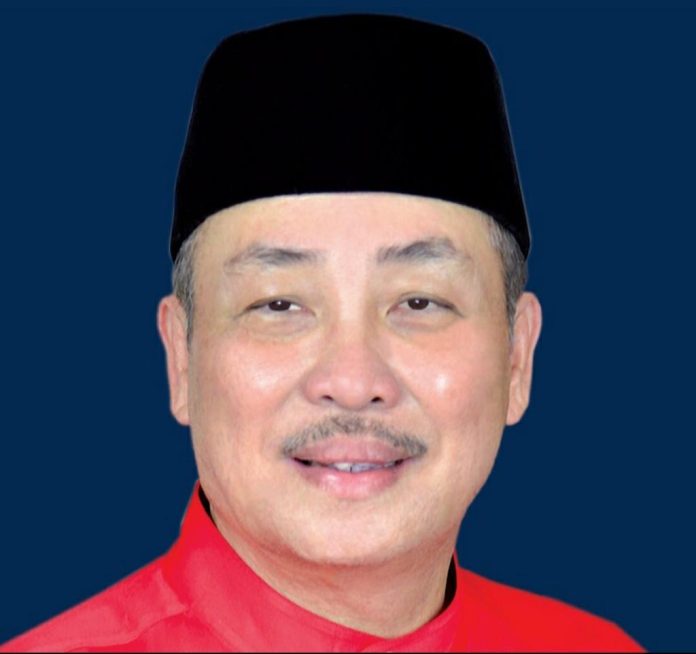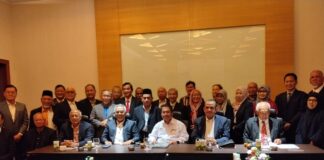KOTA KINABALU: A policy initiative will be put in place to protect the resilience of the palm oil sector and setting Sabah up to become a global leader in sustainable palm oil production, said Chief Minister Datuk Seri Panglima Haji Hajiji Haji Noor.
He said this initiative will be done through the concurrent implementationof the Jurisdictional Certification of Sustainable Palm Oil (JCSPO) and Malaysian Sustainable Palm Oil (MSPO) certification that aims at achieving the internationally-recognised Roundtable on Sustainable Palm Oil (RSPO) standard.
He said this in his keynote address at the inaugural East Malaysia Palm and Lauric Oils Price Outlook Conference and Exhibition (emPOC2022) at the Magellan Sutera Resort here today.
The text of the speech was delivered by Local Government and Housing Minister/Finance Minister II, Datuk Seri Panglima Masidi Manjun.
“Consistently and over the years, various initiatives have been introduced and implemented by the State Government to ensure the palm oil sector remains the State’s key economic driver.
“The State Government will continue to pursue efforts to increase the crude palm oil (CPO) yield per hectare through precision agriculture, farm mechanisation, control of pests and diseases and many more.
“At the same time, the State Government is focusing on leveraging technology and innovation to increase productivity and competitiveness of the oil palm downstream sector,” he said.
The Chief Minister said the price of CPO in Sabah has increased by 26.8 per cent to reach RM5,372.50 per tonne for the period of January-August 2022 compared to RM4,505.50 per tonne for the year 2021.
He attributed the increase in the price of CPO to the rise in the world soybean oil price, the disruption of palm oil supply as a result of labour shortages in the plantation sector and the effect of the increase in Brent crude oil prices in the world market.
“In terms of production, Sabah’s production of CPO in 2021 was recorded at 4.36 million tonnes with 4.02 million tonnes exported to countries such as the United States, China, the European Union (EU) and South Korea.
“For the period of January-August 2022, the export of palm oil and other palm-based products amounted to 3.04 million tonnes has increased by 58,343 tonnes compared to 2.98 million tonnes in the same period last year,” he said.
As for the export value of palm oil and other palm-based products generated by the State, he said last year it amounted to RM19.9 billion, a hike of 32.7 per cent compared to about RM15 billion in 2020.
Supported by the rise in global market price, the export value for the period of January- August 2022 has increased by RM5.87 billion or 53 per cent to reach RM16.94 billion compared to RM11.08 billion in the corresponding period last year.
“With export contributions amounting to billions of Ringgit, it is without a doubt that the palm oil industry plays a major role to boost the state’s economic growth and reaping socio-economic benefits for the people,” he said.
At the moment, he said nine palm oil refineries are operating in Sabah with a processing capacity of 7.48 million tonnes per year, with two biodiesel factories operating to produce 300,000 tonnes of palm-based biofuel annually.
“To this end, the Sabah State Government will push the momentum to ensure Sabah’s participation in the oil palm downstream sector to maximise the State’s advantage as a major player in planting and producing palm oil in Malaysia,” he said.
Hajiji said the State Government had established the Palm Oil Industrial Clusters (POIC) – Lahad Datu and POIC Sandakan as a development hub for the palm oil industry to spearhead the development of palm oil-based downstream activities.
Both POIC Lahad Datu and Sandakan were developed with facilities and equipment integrated with port facilities to support import and export activities of palm products which will be used by the industry and investors.
According to him, based on the progress in the palm oil sector and improvement of infrastructures, as well as the availability of attractive government incentives, this will provide excellent business opportunities for industry players to venture into the downstream sector.
“To this end, the State Government encourages palm oil industry players in Malaysia to invest in the downstream palm oil industry by developing oleochemical factories in Sabah.
“The development of an oleochemical factory has huge potential since there is none in existence in east Malaysia, particularly in the Sabah at the moment,” he said.
The Chief Minister assured that the State Government through the Ministry of Industrial Development was committed to help coordinate and facilitate the investment and development of the oleochemical factories.
“I am confident that the palm oil exported from Sabah will be more profitable if value can be added through the development of the downstream palm oil industry,” he said.
Hajiji also welcomed the two-day emPOC2022, that was organised by Bursa Malaysia for the first time in East Malaysia.
It was timely for Sabah as it focuses on the palm oil industry, one of the State’s key economic drivers, he said.
“I am confident emPOC2022 will feature multiple insightful sessions by industry experts and provide valuable opportunities for participants to network and stay updated on topics surrounding the supply and demand of palm oil, geopolitical risks and the looming possibility of recession ahead,” he said.


